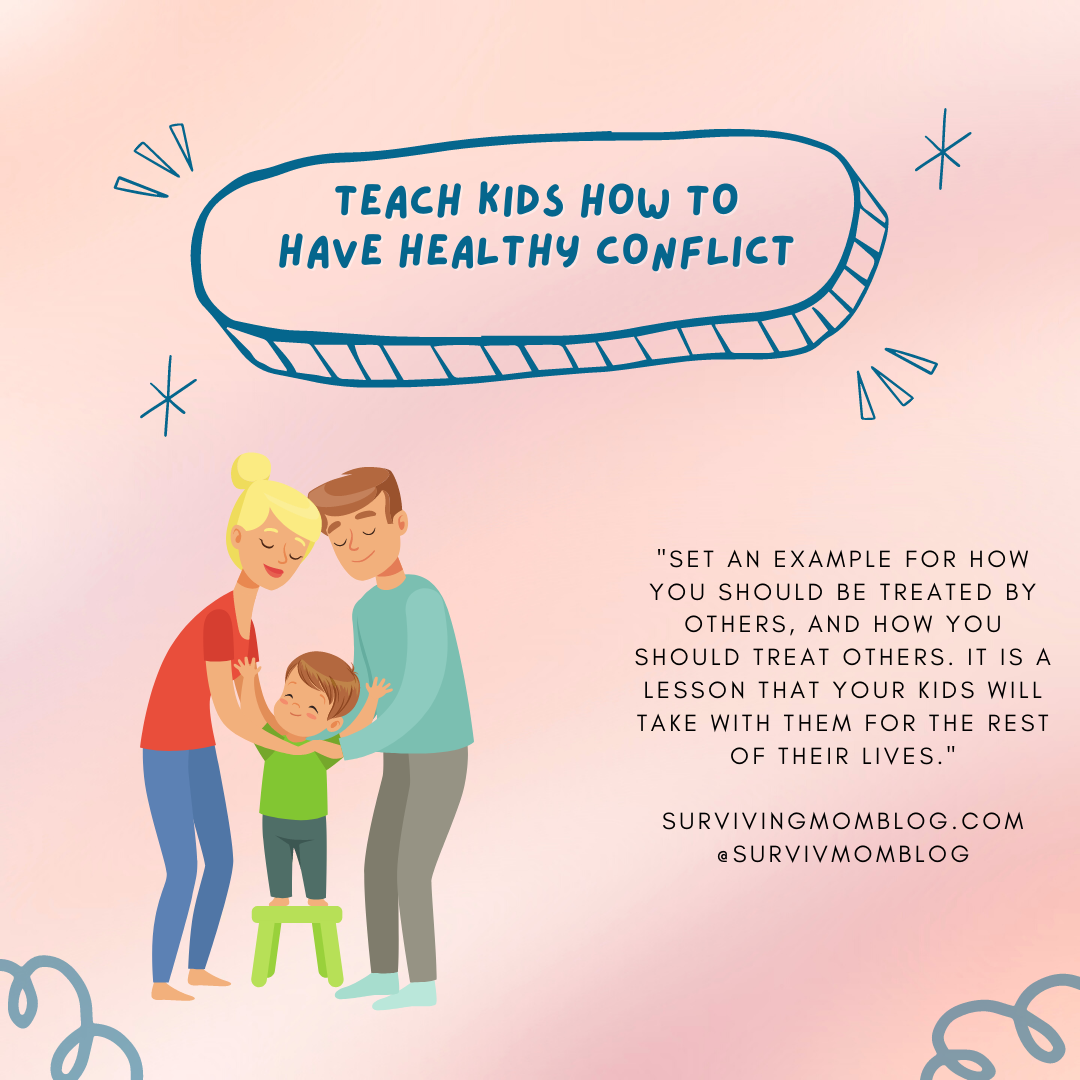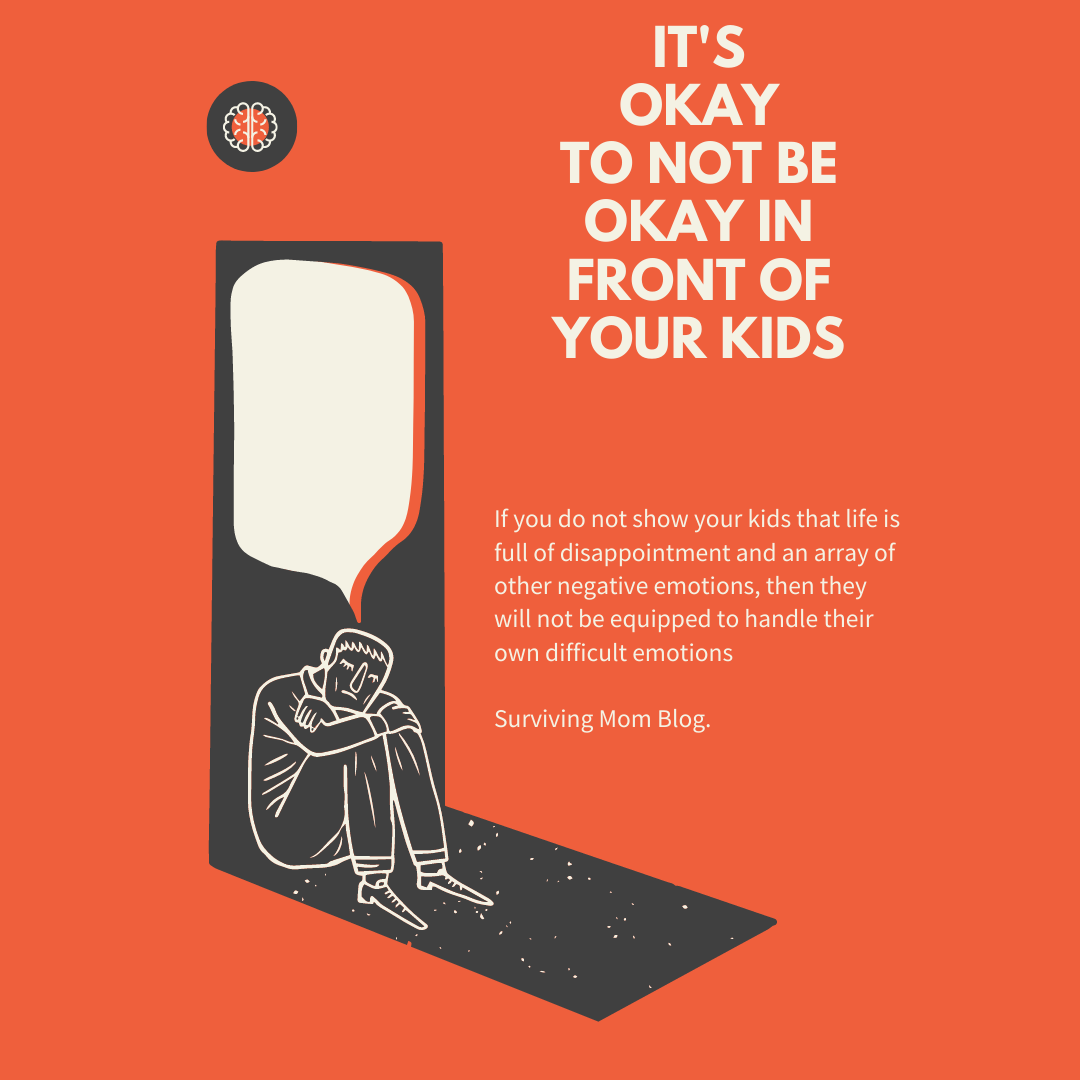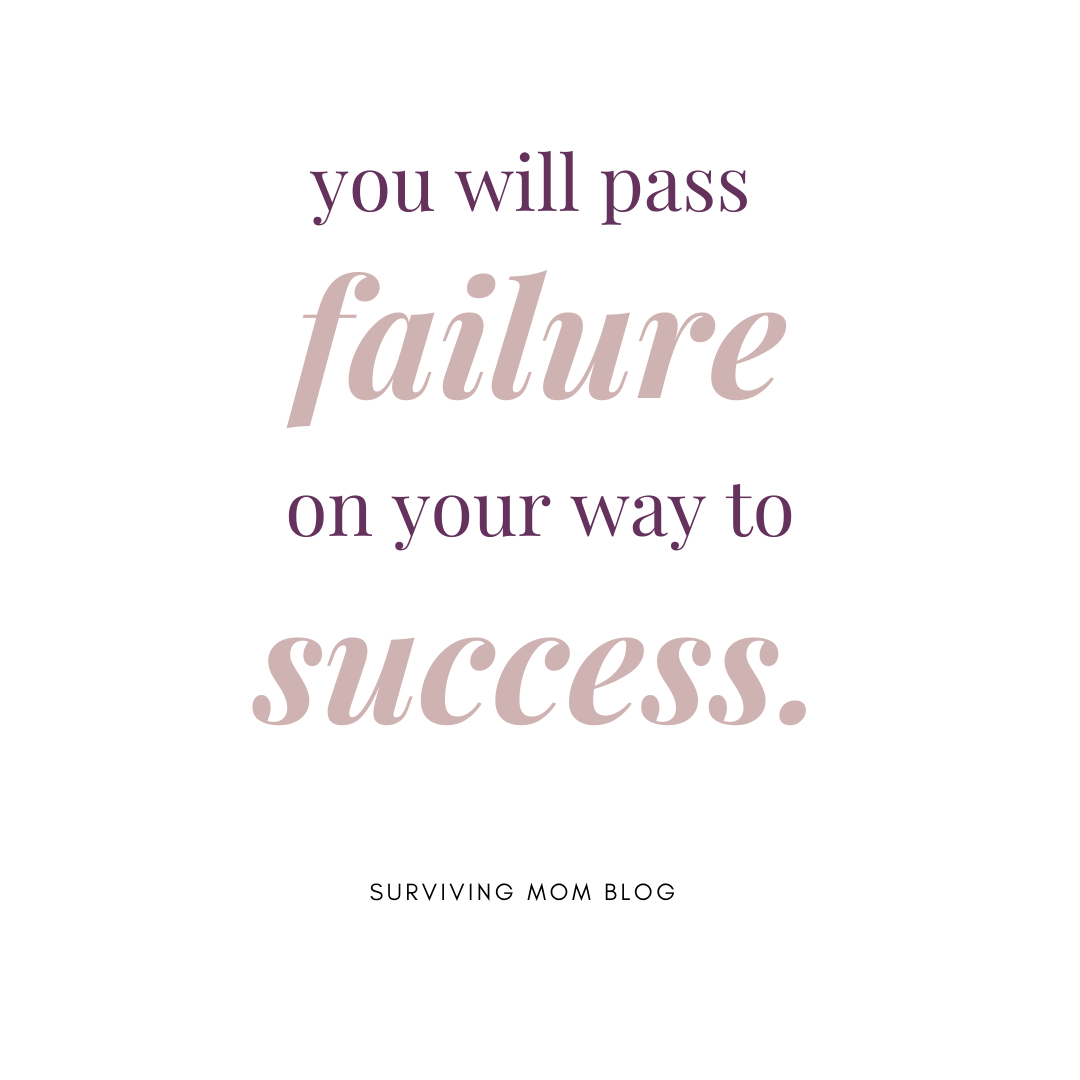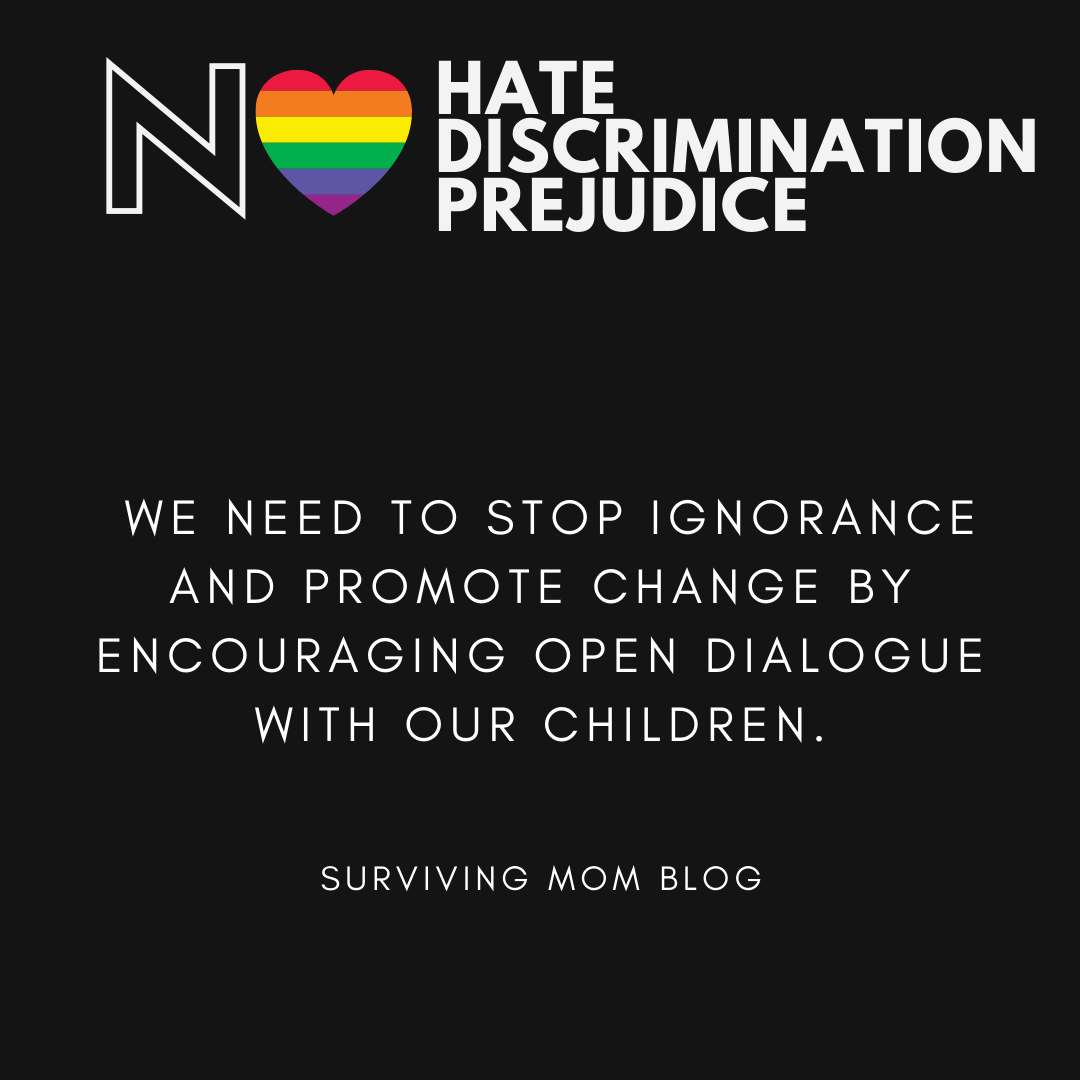
We hide things from our kids. Each and every one of us does this. We do this for a variety of reasons, and our intentions are usually good. We want to protect our kids, we may feel certain topics are inappropriate, or we ourselves are doing something that contradicts what we tell our kids. Despite our hearts being in the right place, the very things we hide from our kids are sometimes what would help them navigate through life. For each of these suggestions, it is important to be mindful of the age, language, and the extent of information we share with our kids. There is a line between exposing our kids to the realities of the world and putting adult problems on their shoulders. With that in mind, these are the 14 surprising things you should not hide from your kids:
(1) Making mistakes
Oops, I’ve done it again. I said a bad word, forgot to call my friend back, misspelled a word in a professional email, or a myriad of a million other things. As tempting as it may be to gloss over it and go about your business, showing your children that you aren’t wonder woman (or superman) is actually a good thing.
You are going to mess up. All of the time. You are going to make mistakes repeatedly throughout life, and so will your kids. Despite our best intentions, we are never going to get everything right. What we can do, however, is show our kids that making mistakes is natural, inevitable, and okay.
The next time you make a mistake, you should not hide it from your kids. Let your kids know that you did your best, but that mistakes will still happen. Show them that being disappointed or frustrated is totally okay, but that nobody is perfect. This shows your kids how to handle their own mistakes.
There are also mistakes we’ve made in the past. Don’t be afraid to share the lessons you had to learn the hard way. Perhaps they won’t make the same choices if they are given the opportunity to learn from the error of your ways.
(2) Healthy conflict
I want you to have a disagreement in front of your kids. Yes, you read that correctly. I know many of us go to great lengths to curtail our conflicts with others. I’m certainly not suggesting you have heated arguments or conversations that are of adult topics while your kids watch. However, showing your kids how to respectfully manage a difference of opinion with your spouse, friend, family member, etc. is actually to their benefit.

If you never expose your kids to any disagreements, then how are they going to have the tools to manage conflict when they are older? Additionally, how will they know if conflict is healthy or unhealthy unless we model for them the proper way to resolve differences?
Show your kids how to listen to another person and work together to compromise. Model empathy, validation, and compassion. Set an example for how you should be treated by others, and how you should treat others. It is a lesson that they will take with them for the rest of their lives.
(3) Resolving problems
If your kids have witnessed a more intense conversation, what should you do? Many times we will stop in the middle of the argument and take it elsewhere, or put a pin in it and finish after kids are asleep. The problem is that once that bell is rang, it cannot be unrung. Your kids have seen and heard something that they will not forget. We cannot turn back the hands of time, but we can do our best to make it a teachable experience. Do not hide resolution from your kids.
Although I am NOT advocating your kids witnessing explosive tempers, if your kids do witness a heated conversation, let them see how you resolve it. That means expressing your feelings in a respectful way, apologizing, and kind words, hugs and/or expressions of love.
There will be times in life when we don’t calmly express our discontentment with another person. Our children need to know the importance of taking ownership of our actions, asking forgiveness, and working to repair our relationships.
(4) Apologizing when you are wrong
I grew up with a mom who felt that because she was my mother, she did not have to apologize. She feels that kids should always apologize, but parents should not. I think that is a load of crap, to put it bluntly.
Apologies are something that anyone of any age should express. It is an acknowledgment of wrongdoing, intentional or otherwise. Let your kids see you apologize to those you have wronged, whether it is a neighbor, a friend, etc. Apologize to your kids if you have done something wrong to them. This models for your kids the importance of taking responsibility for your actions, and teaches them to admit when they are wrong.
(5) Managing finances
Again, this is something many of us do in private. We discuss our finances away from our kids in an effort to protect them, and/or because we feel it isn’t their business. While I do agree that your kids do not need to know all aspects of your finances, managing finances is something you should not hide from your kids.
Let your kids see how you create with a budget. Teach them about the importance of paying your bills on time. Discuss with them what a credit card is, and how it shouldn’t be used to buy more than you can afford. Explain what interest is and how it works. Navigate them through the importance of savings and setting aside money for the future. How do we expect our kids to navigate bills, loans, etc. if they are not given the knowledge to do so? As long as you tailor it to the age and level of the child, finances can and should be discussed.
(6) When you are emotionally struggling

I’ve discussed this in numerous posts, and I keep mentioning this for a reason. I’ve witnessed so many parents who feel they need to hide their feelings of sadness, anger, grief, or any other negative emotion from their kids. They put on a happy face, and act as if they are fine no matter what the circumstances.
I know you mean well and are trying to protect your kids. You don’t want them to worry about you. However, it is okay to not be okay. It is imperative that your kids see that life is not a bed of roses. If you do not show your kids that life is full of disappointment and an array of positive and negative emotions, then they will not be equipped to handle their own difficult emotions.
The next time you are struggling, teach your kids the importance of acknowledging your feelings. Label your emotion, show them that it is necessary to accept how you are feeling without judgment, and then model how you cope with your feelings (for example, doing yoga, taking a few minutes to yourself, writing in your journal).
I’m not suggesting you share your life’s problems with your child. However, letting your child know that you are feeling anxious about an upcoming meeting and need a few minutes to do some deep breathing helps your child learn that feelings are nothing to run away from.
(7) Prioritizing yourself
I want you to make your happiness and needs a non-negotiable. That doesn’t mean ignoring their well-being or not parenting them. However, I want your kids to see that you take time for yourself and your well-being.
Implement a self-care routine daily. Take time to do something that brings you joy, whether it is reading a book, taking a hot bath, or lying on the couch and doing absolutely nothing. Make sure your kids are somewhere safe and then focus on you.
Part of prioritizing yourself is setting boundaries. Do not hide from your kids that you say no to something that isn’t in your best interest. Teach your kids to never apologize for setting boundaries and expressing your needs to others.
Demonstrating the importance of prioritizing yourself shows your children that their well-being is their responsibility. It also teaches them that their own self-care should be prioritized as well. We cannot be the best versions of ourselves if we neglect ourselves on behalf of everyone around us. That only causes burnout, emotional, physical, and psychological duress, and resentment. Openly take care of yourself and encourage your children to do the same.
(8) Asking for help
Many of us see asking for help as a sign of weakness. Our society promotes a mentality of us being able to do it all, no matter the cost to our well-being. On the contrary, I believe asking for help is a sign of great strength. It is being vulnerable and humbling ourselves to the reality that we all need others. Asking for help is something you should not hide from your kids, whether it means getting professional help or asking your spouse to help out more. Encourage your kids to be honest about their struggles, feelings, and needs. Teach them to reach out and ask for help if they need it. We want our kids to try their best, but we also don’t want them to feel they are failures if they need assistance from others, whether that means getting tutoring or coming to you with their emotional struggles.
(9) Seeing us fail
Just as mistakes are par for the course, so is failure. We are not going to succeed at everything, no matter how hard we may try. Teaching our kids how to deal with failure is necessary for the hurdles they will face in life. If we hide our failures from our kids, then they will not be prepared for the failures they will inevitably face. Let your kids know when you have failed, and be honest about how it makes you feel. Let them know that all we can do is try our best, and that the rest is out of our hands. It is important for our kids to know that we cannot have success unless we also have failure.

(10) Resilience
Just as it is important to not hide failure from our kids, it is also important to show our kids the importance of resilience. Life will knock us down innumerable times, and we must keep getting back up again.
I wrote a children’s book, and I have been querying agents for awhile now. I have gotten rejection letter after rejection letter. My daughter asked me why I keep trying, and my response is that I will keep querying until I get an agent. I may never get an agent, but I can keep giving it my all. I want my daughter to know that she should always believe in herself, and that she needs to keep fighting no matter what life throws her way.
(11) Eating junk food
I am a huge junk food lover. In the early years of my daughter’s life, I would wait until she was asleep to eat my chocolate. However, I realized that there is no need to hide this from her. Instead, I want to teach her the importance of eating in moderation. She can absolutely have sweets, just as I do. She also sees me eating healthy foods and exercising. I want her to have a healthy relationship with food; therefore, I model healthy eating habits and show her that eating junk food in moderation is perfectly okay.
(12) Puberty and sex
My daughter is 8, and I have been very open with her about what is is like when I get my period. She understands that changes will happen to her body in a few years.
If children ask questions, answer them honestly. Give more or less detail depending on the age and development of the child. For example, you can explain that adults use a razor to get rid of hair on their legs, face, underarms, etc. The important thing is to encourage your children to come to you with any questions they have.
As your child gets older, explain puberty and sex. Let them know how their bodies will change and how it will feel. Discuss the importance of not being afraid to say no, birth control, and that they can come to you with any questions. It is necessary to discuss sex so that they understand the responsibilities that come with having sex, and the importance of having safe sex. Knowledge is power, and you want your kids to have as much information as possible.
(13) Death
We all will eventually lose someone that we love. However, death is something that we should not hide from our kids. The extent of the conversation should vary based on age and development, but even young children should have the opportunity to ask questions and be able to understand the concept of loss on some level. Just as it is important to teach kids that difficult emotions are part of life, they need reassurance that feeling grief is normal and healthy.
When my husband’s grandfather passed away two years ago, it was the first time my daughter dealt with death. She saw me and my husband cry, and we explained to her that her Great-Grandfather had died. We discussed how she felt about it, and I answered any questions that she had. I told her that there is no right or wrong way to feel and experience loss, and I reassured her that she could continue to come to me with any questions or feelings. I reminded her that we keep him alive in our minds and our hearts by thinking about him and talking about him.
(14) Prejudice
We live in a world where discrimination and violence take place. Children are naturally curious, and they ask about differences out of pure observation, as opposed to contempt.
I remember the first time my daughter met a person of color. She looked at him and asked him why his skin was a different color than hers. He explained that people are a variety of colors, and that those differences are what make the world special. My daughter nodded, her eyes big, and then she gave him a hug.

When my daughter saw a man in a wheelchair for the first time, she asked me what it was and why he was using it. The man saw her looking at him and asking. My first thought was that her questions were making him uncomfortable. It took me a few seconds to realize that wasn’t true. I was the one who was uncomfortable.
Differences are not something that we should hide from our kids. I realized that if I shied away from her questions, it was sending her a message that others that are different than us are to be avoided. Worse, it could portray those differences as something to be disliked or feared. It is important to talk to our children about prejudice and that it is not okay to mistreat others who look or act differently than we do. We need to stop ignorance and promote change by encouraging open dialogue with our children.
The suggestions above are by no means easy to show our kids. It is very understandable why we hide these things from them. However, it is often the most uncomfortable topics that lend themselves to the greatest life lessons. However, when we stop hiding things from our children, we allow them to have a better understanding of the world and be better equipped to handle whatever life throws their way.
Disclaimer
This post may contain affiliate links. If you purchase a product via my link I may receive a small commission at no additional cost to you. Please visit our disclaimers here



Naomi P Lane says:
This is a fantastic list of advice for all parents. The one I am not good at is sharing information about my finances. I tend to keep this private. I don’t want my kids sharing it with their friends. It’s true though that our son could have really used some training on budgeting before he moved out on his own. I like to think that I was pretty open with my daughter about sex and women’s bodies, but you would have to ask her. I was probably more open than most because I grew up with older European parents who walked around the house naked and an unabashedly sexual older sister. It’s good to have siblings to bounce all this information off.
Randi says:
Thank you so much, Naomi, for your feedback and support! I actually laughed out loud when I read about your older sister and parents. I think it’s great that you were open with your daughter about sex and her body! I think many people don’t share finances for the reason you stated. My hope is that this post might change their perspective!